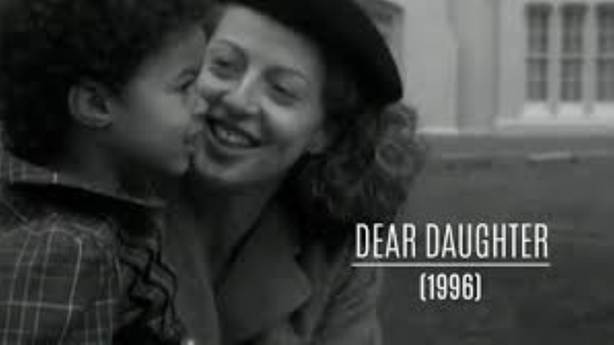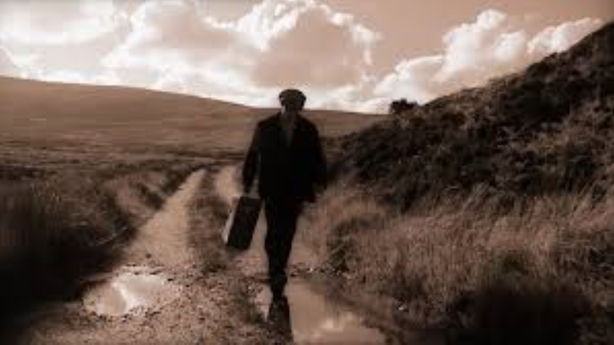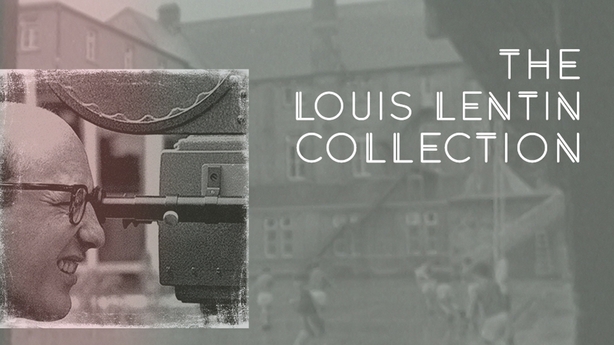Louis Lentin forever changed the face of Irish documentary making through his probing and insightful explorations of social injustice and state failure.
To mark the tenth anniversary of his passing, we explore his legacy through the Louis Lentin collection on the IFI Archive Player.
Shining a light on injustice
At a time when investigations into the many ways the Irish state has failed its citizens are unfortunately common place it's almost impossible to comprehend the impact Louis Lentin’s pioneering documentary work had on Irish society in the 1990s. Lentin’s ground breaking RTÉ documentary Dear Daughter (1996) and his series for TV3, Stolen Lives (1999) (along with Mary Raftery’s States of Fear (RTÉ 1999)) created a collective awareness of institutional abuse and shone a light on the state’s complicity with the church in mistreating vulnerable sections of Irish society over many decades.

Dear Daughter told the harrowing story of Christine Buckley, a mixed race woman who was abandoned when she was just a few weeks old and grew up in Dublin’s now notorious Goldenbridge Industrial school in which was run by the Sisters of Mercy. Lentin was inspired to give her and other survivors a voice after hearing her tell her story of physical and psychological abuse on Gay Byrne’s radio programme.
Achieving the highest ever viewing figures for a documentary on RTÉ at the time, the revelations made within Dear Daughter dominated the news for several weeks and caused a national outcry that eventually led to the establishment of the Murphy and Ryan commissions into institutional abuse, and prompted a state apology to survivors from the Taoiseach Bertie Ahern. Lentin returned to the theme of institutional abuse in the three-part series Stolen Lives, which looked at the experience of survivors of Irish industrial schools between the 1940s and 1970s.
A theatrical beginning
Born in Limerick in 1933, Lentin had intended to be a doctor initially studying medicine at Trinity College Dublin. However his love of the arts was ignited through membership of the Trinity Players and he changed focus to become an accomplished and award winning theatre director, founding Dublin’s Art Theatre Productions in 1959.
Lentin joined RTÉ in 1961 at the invitation of Hilton Edwards, initially as a floor manager before progressing to the role of news director. His reputation in television was cemented in 1966 when he produced and directed Insurrection, a pioneering eight-part reconstruction of events of the Easter Rising which was broadcast nightly during the centenary week of The Rising. As RTÉ’s Head of Drama he oversaw the Thursday Playdate and the Sunday Series that showcased plays by many Irish playwrights.
Lentin left RTÉ in 1989 and formed an independent production company, Crescendo Concepts. It was as an independent producer Louis tackled a range of challenging subjects, uncovering injustices in Ireland’s past which would prove instrumental in effecting significant changes in Irish society.

Migrant stories
His feature documentary Ar Dover Fein ( 2001) examined the plight of ten young Achill islanders, some as young as 13, who lost their lives in a fire in Kirkintilloch, Scotland after travelling there to work in the potato fields. The documentary investigates the tragedy and considers the plight of migrant workers over the years.
In his final documentary, Grandpa, Speak to me in Russian (2007), Lentin returns to the theme of migration, telling the story of his paternal grandfather Kalman Lentin who migrated to Ireland from Lithuania in the 1890s as an unaccompanied minor.
Louis Lentin won many national and international awards for his film, television and theatre work and in 2006 in recognition of his contribution to the Irish arts for over half a century he was honoured with membership of Aosdána, the Irish academy of distinguished artists.
He passed away in July 2014 but his legacy lives on through his insightful and challenging work. Lentin's remarkable films are willing to explore the darker side of human nature and therefore contain much that is still relevant to contemporary audiences.

The Louis Lentin Collection is now available to watch via the IFI Archive Player


